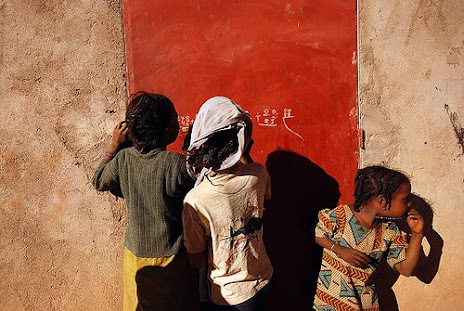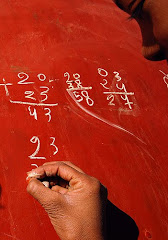I can't say I was surprised by the findings outlined in this chapter, it was already apparent where the true learning was taking place. I did enjoy, as usual, our discussion of the chapter, it was a well organized presentation for sure, the flow chart was exactly the right touch! It was what I had attempted to do in my own presentation but I couldn't get to work out the way I wanted, great job!
The effect that teachers have on students mathematical beliefs and knowledge is in some ways a little scary. In their attempt to simplify content the AH teachers caused unintentional harm to their students abilities, they could not solve problems without cues and could not apply knowledge to novel situations which required them to make connections between concepts. This is what we don't 'see' as we teach, since the development of mathematical beliefs and identities are ongoing and cumulative. What we do take as student learning, when we say, "yes they've got this" ( like Michelle expressed with her story about integers and bedmas) is generally not true at all. The more I read and hear in this course the more I realize that what we see in the classroom is that some (but not all) students can follow what I've taught and replicate it at that moment in time, but that this is not knowledge and it is definitely not understanding. We have all expressed experience with the "what is the matter with them [students] they knew this yesterday (last week, two weeks ago). Yet, like the AH teachers we didn't stop to really ask why or to connect lack of success with our teaching, "I understand it, my steps were clear... so they should understand it".
We need to strive for more than what we have accomplished in the past with our instruction. I know that having had the discussions this course work and this group has allowed I now find it impossible to ignore what I know has to be changed. I say ignore because at some level isn't that what we've all done when we notice student frustration or lack of recall, ignore the real reason behind it? What we want is to produce students who are "flexible with mathematics knowledge and are able to adapt and change", we want them to take a stance of inquiry that makes them see that exploring mathematics and connecting concepts is a natural process.
Now how do we do that exactly?
Video Links Have Been Moved!
Friday, November 6, 2009
Subscribe to:
Comments (Atom)

